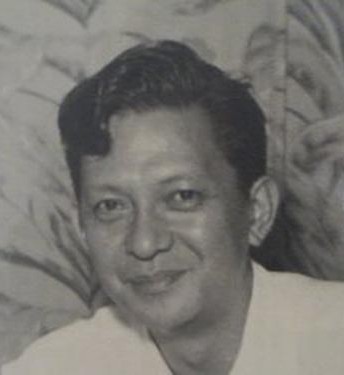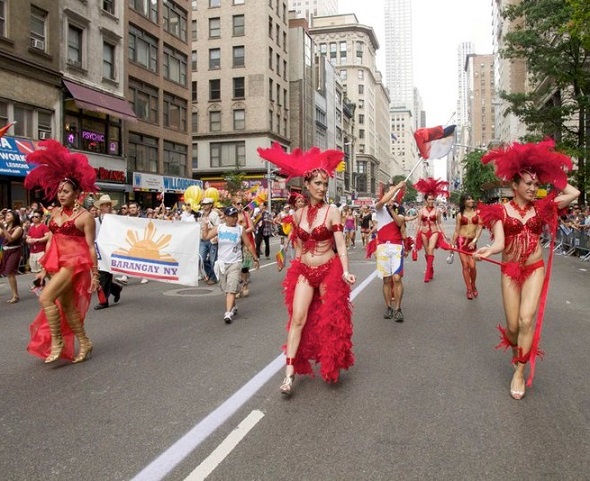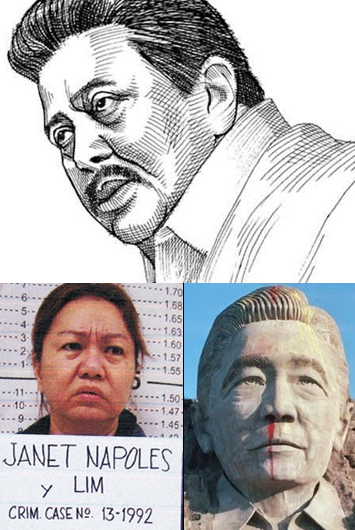Carnal fireworks in ‘Erotica Manila’

By Joel David
Pinas fanboy film culture must have worn itself out, or else we’d be hearing lamentations about how our filmmakers have started regressing. After making increasingly longer modernist works, we now find several contemporary talents focused on short-length material, sometimes even geared for TV or streaming. But thank goodness for the dissipation of high-art pretension, or we wouldn’t be able to recognize how some of our best and brightest have been able to respond to the challenge of encapsulating entire narrative worlds within delimited timespans.
The possibility was first raised when Erik Matti announced that his sequel to On the Job (2013), titled On the Job 2: The Missing 8 (2021), would be adapted into a six-part miniseries for HBO, with the original film comprising the first two episodes. Then last year, the best entries to the first ShoutOut short film competition were compiled into a two-hour anthology, slated for exhibition at this year’s Cinemalaya Philippine Independent Film Festival. (Essential disclosure: I was chair of the board of jurors that evaluated the films and provided prizes and citations for outstanding titles and participants.) Titled ShoutOut Pinas 2022, the omnibus work is reminiscent of the 2020 anthology Septet: The Story of Hong Kong, where seven filmmakers provided historical dramas covering specific decades in the former British crown colony’s history.
One might be able to conjure up the riskiest possible combination for this type of project: a playfully sex-themed series which features minimal interactions among the main characters (since each entry was conceived as an independent featurette), made for the local streaming service condemned by moralistically impelled commentators in social media. Nothing in the content and format of Erotica Manila, a four-episode program still screening at Vivamax, indicates any attempt at formulating any grand or problem-solving social statement. Yet when the filmmaker, Lawrence Fajardo, suggested to film-critic acquaintances to watch the series sans intervening credits – as yet another regular-length movie, in effect – an accomplished entertainment made itself evident, with the promise of further insights affirmed by subsequent viewing.

The film that resulted from the concatenated entries, titled Erotica Manila: Foursome and announced as Vivamax’s intended entry to international filmfest competitions, dispenses the expected turns commonly regarded as weaknesses in standard narrative construction: in less than a half-hour, the focus shifts to the next episode’s primary character, who always happens to be a passerby at the close of the preceding story. Fajardo being Vivamax’s fair-haired inhouse talent (after the apparent departure of the unlamented and unmissed Darryl Yap), carnal fireworks ensue, with unexpected and generally satisfying twists just as the next main character happens along. The agents that the narrative follows are male, but the film’s sexual politics turns increasingly scary, funny, and (unusual for Fajardo) queer, with women providing the plot twists on which the stories pivot.
The film’s apparent rationale for these shifts – standard in series presentations but usually associated with carelessly developed “trash” material – is its immersion in media activities: from film spectatorship initially, through content management, culminating in actual production, where a predatory older actress preempts her gay directors in laying their horny young assistant. The final episode, set in an urban slum among irregularly employed denizens, might consequently appear to be unrelated to the preceding series; yet its throwback to the poverty-porn trend in Philippine independent cinema makes it the perfect closing material, and then some. The heightened degree of pathos actually masks disturbing sexual-slapstick developments, complete with (technically) a happy ending. The scene where a husband is unaware, while performing in bed, that he’s nailing more than just his wife – these and several other WTF moments actually serve to challenge viewers to LOL if they think they can.
It helps to be aware, in approaching EMF, that its director specializes in multicharacter narratives – the Philippines’s most successful practitioner of this fiendishly difficult format since the heyday of Ishmael Bernal. In explaining how he and his scriptwriters (Jimmy Flores and Miguel Legaspi) conceptualized the project, he initially envisioned a singular intertwined plot. After working out the major lines of action, however, he realized that each one might be misunderstood or trivialized if it were to be juxtaposed with the others, and that the sensational incidents that attend each one would strain the narrative’s credibility if these were presented as simultaneously occurring.
Those inclined to dismiss the resultant episodic format might want to direct their attention not just to the ancient folkloric texts adapted as an outstanding film series (dubbed the “Trilogy of Life”) by Pier Paolo Pasolini but also to a classic European play, written over a century ago and filmed during mid-20th century as La Ronde by Max Ophüls. With these as reference points, EMF features the same careful attention to plot and character as the latter, while partaking of the graphic and life-affirming bawdiness of the former. With a fairly small team of technical experts sharpened by several years of intensive experience on soft-core material, plus the large stable of attractive and enthusiastic actors that the country’s most successful production house could readily summon, Fajardo has wound up with a so-far unclassifiable but definitely superior amusement, in many ways his (and Vivamax’s) best output so far.
Joel David is a Professor of Cultural Studies at Inha University and was given the Art Nurturing Prize at the FACINE International Film Festival in San Francisco, California. He has written several books on Philippine cinema and maintains a blog at https://amauteurish.com.











